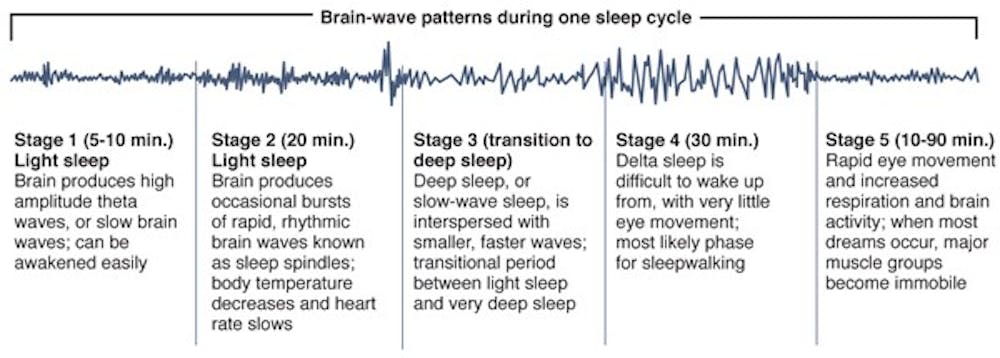Students sleepwalk into odd scenarios

While sleep disorders – including sleepwalking – are common, coming to college with a sleep disorder can be unnerving. However, some Central Michigan University students have learned to cope with their disorders.
Sleepwalking is a disorder that occurs during stages three and four of sleep, known as the "deep sleep period."
Psychology professor Carl Johnson said there is no known cause for sleepwalking, but there are ideas.
“Somnambulism, or sleepwalking, is not dangerous unless the person falls down stairs, walks in traffic (or things like that),” Johnson said. “We do not know the cause, but believe it is related to brain maturation. It is more likely to occur for someone prone to it when stressed, overly tired or sleep deprived.”
Saginaw senior Jennifer Moiles has been sleepwalking and sleep-talking for as long as she can remember. She believes stress is the trigger.
“I usually sleepwalk a few times a week, and I talk out loud in my sleep most nights, too,” she said. “I know that stress is something that causes me to sleepwalk. I worked three jobs this past summer and didn't get much time off, and I noticed I was sleepwalking way more than usual. When I sleepwalk and sleep talk, it is usually job-related.”
Sleep walkers perform activities that mimic everyday actions, as if they were fully awake at high consciousness.
One of the many jobs Moiles had this summer was working as a tour guide. One night, she slept walked and talked throughout the night, performing one of her tours until she spoke loud enough to wake herself up.
“I would dream that my tour groups were in my bedroom, waiting for the tour to start," she said. "I would get out of bed, still dreaming, and clean my messy room and put on my work uniform and start giving my tour, until I talked loud enough to wake myself up, at which point I would realize what was happening."
According to Johnson, sleep walking is most common in children pre-puberty. Illinois freshman Khadijah Kennedy experienced sleep walking at a young age.
“When I was 10, my sisters said that I was walking around in my sleep, and apparently I was playing with the electrical cords behind the TV,” she said. “My sister was scared I was going to electrocute myself, she woke me up immediately, and I had no idea what I was doing and didn’t remember what happened.”
Kennedy is unsure whether she still sleepwalks, but has yet to have any other dangerous encounters in her sleep.
“I might to this day still sleepwalk, I just don’t know because I’m sleeping, but I haven’t woke up in any extraordinary places,” Kennedy said. “I think it is dangerous, considering I was playing with cords.”
Sleepwalking is something Moiles has had to cope with her entire life. Rather than disregarding this sleep disorder, she has come to terms with it, taking precautions by informing the people she surrounds herself with.
“I've had to warn boyfriends and roommates about my sleepwalking habits so they don't think I'm crazy if it starts happening while they're around,” Moiles said. “I also take lots of naps because I don't get a good night's sleep when I'm sleepwalking all the time.”



